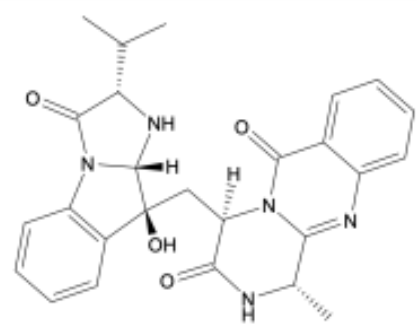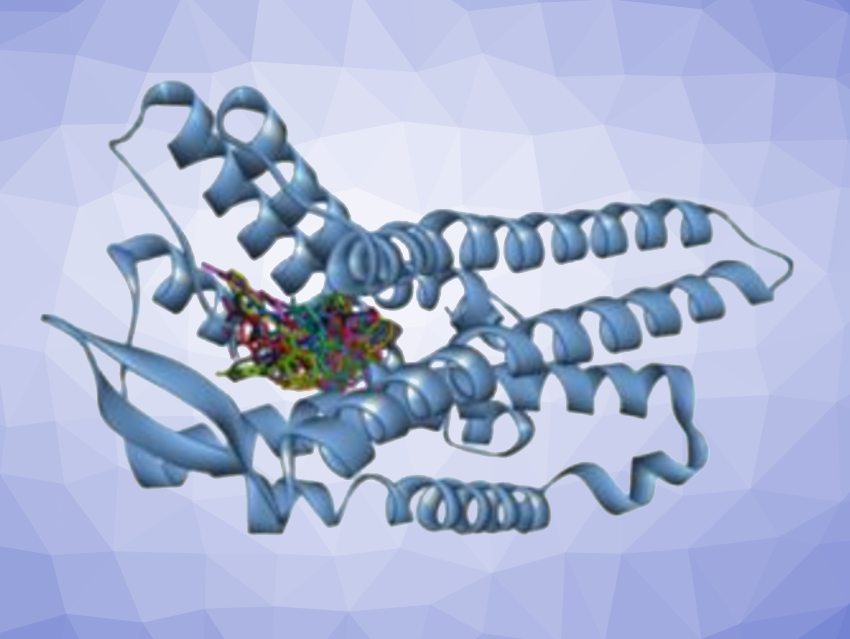The opioid crisis is a global problem with numerous victims. Despite strategies taken by governments to restrict the prescription of opioids, there are still many people addicted to these drugs—as well as many suffering from acute or chronic pain that need relief. Thus, there is an urgent need for safer analgesics.
Thomas Efferth, University of Mainz, Germany, and colleagues have discovered that a natural product called aniquinazoline B (pictured below), isolated from the marine fungus Aspergillus nidulans, acts as an agonist at μ-opioid receptors (MOR). Morphine is a prototypical μ-opioid receptor agonist, and the Greek letter μ in their name refers to Morpheus, the Greek god of sleep and dreams after which morphine was named.

The team first virtually screened a chemical database containing over 40,000 natural products, as these are a valuable source of drug candidates, for compounds with a high binding affinity towards MOR. The top 100 compounds were then further investigated using in silico methods (i.e., computational methods), and the best ten were tested in vitro using biochemical methods; this led to the discovery of aniquinazoline B.
The team found that aniquinazoline B activates the MOR pathway without cytotoxic effects. The compound inhibits cyclic adenosine monophosphate (cAMP) accumulation, a property that is commonly used to screen potential drug candidates for MOR. If opioid agonists bind to MOR, they inhibit the enyzme adenylyl cyclase and reduce the cAMP levels. In addition, the researchers found that aniquinazoline B affects the regulation of different genes from those affected by opioids, and thus, acts via different pathways—indicating that it might have a better safety profile.
- Aniquinazoline B, a fungal natural product, activates the µ‐opioid receptor,
Roxana Damiescu, Mohamed Elbadawi, Mona Dawood, Sabine M. Klauck, Gerhard Bringmann, Thomas Efferth,
ChemMedChem 2024.
https://doi.org/10.1002/cmdc.202400213
Also of Interest
- Spotlight: The Misjudgment of Heroin,
Vera Koester,
ChemistryViews 2024.
https://doi.org/10.1002/chemv.202400057
From cure-all to most notorious drug of the 20th century




